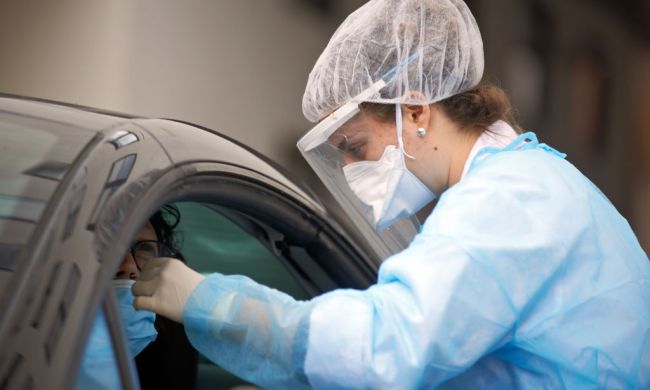One of the world’s biggest tech events — CES, held in Las Vegas every January — may have helped propel COVID-19 infections throughout the country and beyond, according to a story by APM Reports.
The article highlights the case of Michael Webber, a professor at the University of Texas in Austin who also works for a global energy firm based in France. Weber fell ill with severe flu-like symptoms shortly after attending this year’s show, which took place between January 4 and 7. This week, the results of a test revealed Webber has antibodies for the novel coronavirus COVID-19, indicating that he had the disease before making a full recovery.
The idea that CES could have been a super-spreader event is all the more interesting for the fact that it took place in early January before any COVID-19 cases had been officially recorded in the U.S. and just as media reports were emerging from the epicenter of the virus in the city of Wuhan, China, in January 2020. The first case of COVID-19 was recorded there on December 8, though some reports suggest it could have been circulating as early as November.
A spokesperson for the Consumer Technology Association, the industry trade group behind the annual event, told Digital Trends it had seen no evidence connecting the show to the spread of the deadly disease.
“The health, safety and security of CES attendees are a top priority, and we take precautions every year to protect our participants. We are not aware of any confirmed cases of COVID-19 connected to CES 2020. And we have not heard from any health officials, government authorities, or corporate entities reporting that one of our attendees was exposed to the virus,” the spokesperson said.
Nevertheless, anecdotal reports from those attending CES, including a number of staff members at Digital Trends, suggest that a very nasty flu-like condition was going around during the four-day event and soon after — though at the time no one knew enough about COVID-19 to make a connection.
Webber told APM Reports that the flu-like symptoms were the worst he had ever felt for such a condition. He also noted how, as he arrived at Las Vegas airport at the end of the event, many people there appeared to be the worse for wear, something he originally put down to “hard partying,” though now he thinks differently.
It’s clearly not beyond the realm of possibility that the 2020 event could have acted as an incubator for COVID-19. Attended by more than 170,000 tech professionals from around the world — with this year’s show hosting more than 100 people from Wuhan — CES sees plenty of handshaking, a good deal of hugging, and numerous conversations at very close quarters, morning, noon, and night.

What we do know for sure is that the virus was causing deaths in the U.S. weeks before anyone realized. Health officials this week reported that two COVID-19 fatalities — a woman named Patricia Dowd in her 50s on February 6 and a man in his 60s on February 17 — occurred in Santa Clara, California, in early February. Santa Clara is in Silicon Valley, America’s main tech hub, and many from there will have attended the tech show.
Dowd did not attend CES, according to the CTA, although five people from her Bay-area employer Lam Research did.
“We understand this is a difficult and unsettling time and people are concerned,” the CTA told Digital Trends. “We share those concerns – especially about our employees’, attendees’, partners’, and workers’ health. We encourage efforts to learn about the spread of the virus and commit to cooperate, consistent with the law, to figure out how COVID-19 was spread and how we can minimize the spread of future viruses.
“Most important, given what we know today, we are taking all precautions to ensure future CTA events are organized and executed based on recommendations by public health experts, with the health and safety of our participants as our paramount concern. And we are encouraged that the combination of technology and medicine will create innovative solutions for pandemics such as COVID-19 and save lives.”
IFA, a German technology show traditionally held around Labor Day in the fall, recently announced that it would move to “an innovative new format,” likely a virtual show, though details on what that would look like were scarce.
Clearly, more research is needed to find out if CES did act as a super-spreader event for a virus that has now taken more than 50,000 American lives and almost 200,000 globally. An investigation could help officials learn more about how COVID-19 took hold in the country, potentially helping to avoid a repeat of this appalling and ongoing tragedy.
For the latest updates on the novel coronavirus outbreak, visit the World Health Organization’s COVID-19 page.


